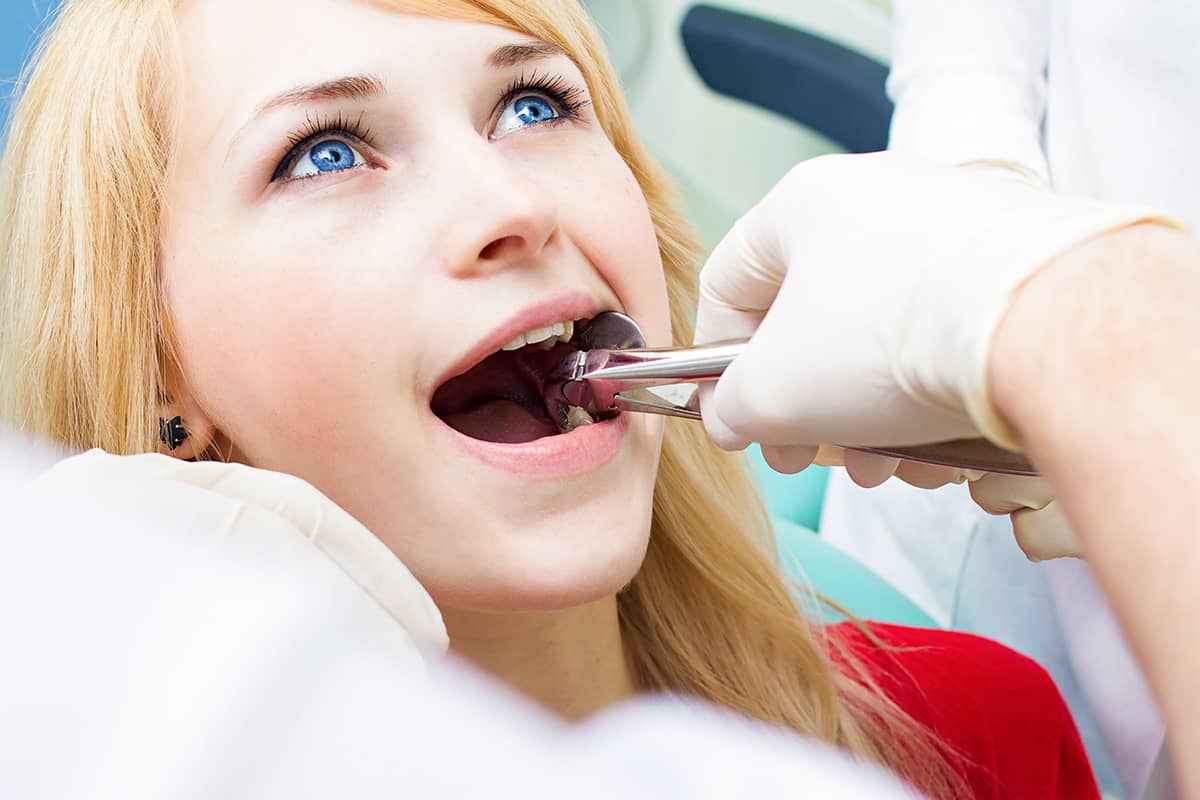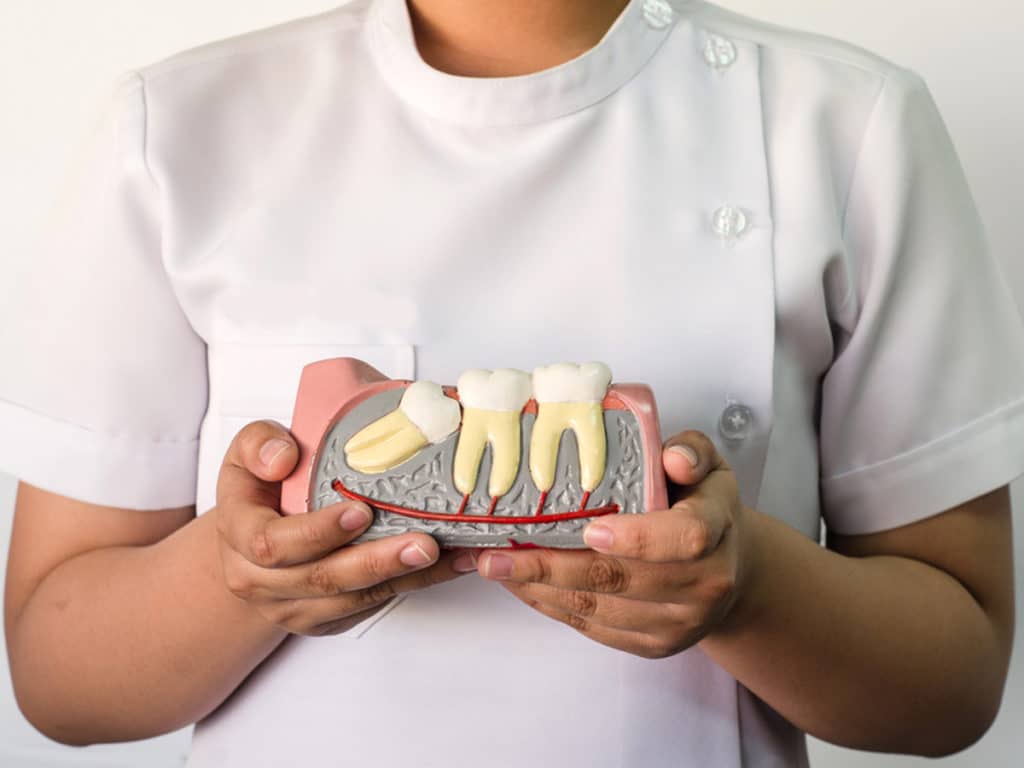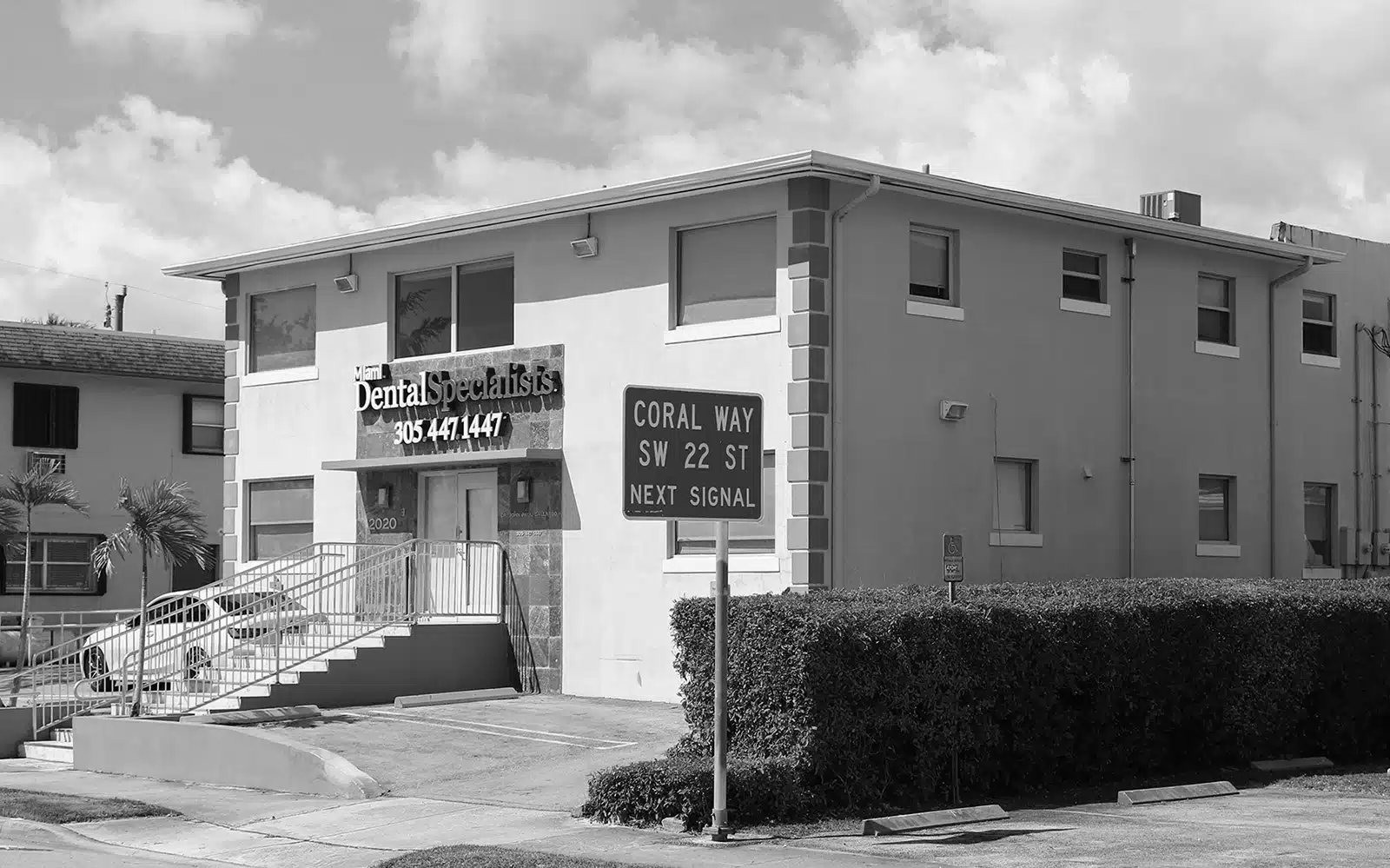
Wisdom teeth, which typically emerge between the ages of 17 and 25, are also known as third molars. Some people may not experience any issues with their wisdom teeth, while others develop impacted wisdom teeth, which can lead to a variety of oral health problems. In this article, we will discuss what wisdom teeth are, the signs of impacted wisdom teeth, their causes, types, and treatment options.
What Are Wisdom Teeth?
The last set of molars to develop in the human mouth are wisdom teeth. They are located at the back of the jaw and serve as additional chewing surfaces. However, due to evolution and changes in our diet, these teeth are no longer necessary. In fact, the human jaw has become smaller over time, making it difficult for all 32 teeth to fit properly. As a result, wisdom teeth can become impacted and cause oral health issues.
Signs of Impacted Wisdom Teeth
There are several symptoms of impacted wisdom teeth depending on the type and severity of the impaction. These may include:
Pain Around the Jaw Area
The impacted teeth can cause jaw pain, particularly in the area surrounding the tooth. Wisdom teeth pain may be constant or intermittent and may worsen when eating or speaking.
Swelling of the Gums
Bacteria can accumulate in the space between the gum tissue and the tooth, which can lead to periodontal disease, infection, and swelling of the gums. This swelling is accompanied by tenderness and redness.
Bad Breath or Sour Taste in Your Mouth
Impacted wisdom teeth can cause bad breath and a sour or unpleasant taste in the mouth due to trapped food particles and bacteria. This can lead to gum disease, tooth decay, and bone loss if left untreated.

Difficulty Opening Your Mouth Widely
An impacted wisdom tooth can make it difficult to open your mouth fully, especially if the tooth is causing mouth pain and swelling.
Tenderness When Eating or Chewing Food
Impacted wisdom teeth can cause discomfort when eating or chewing, particularly if the tooth has partially erupted.
Redness and/or Bleeding Around the Gum Line
Inflammation, swelling, and infection of the gums can cause gum tissue to become tender and prone to bleeding, especially when brushing or flossing. As a result, bleeding at the gum line is a common symptom of impacted teeth.
Difficulty Brushing Teeth in That Area
Impacted wisdom teeth can make it challenging to brush and use dental floss properly, leading to plaque buildup and an increased risk of dental disease.
Headaches or Jaw Aches
Impacted teeth can cause headaches or jaw aches from the pressure they place on surrounding nerves and tissues.
Teeth damage
The impaction can cause damage to nearby teeth, including crowding, misalignment, and an increased risk of decay.
What Causes Impacted Wisdom Teeth?
There are several reasons why teeth can become impacted including:
Overcrowding in the Mouth
A lack of space in the mouth is the main cause of impacted wisdom teeth, as mentioned earlier. Overcrowding can prevent wisdom teeth from erupting, leading to impaction.
Not Enough Room for the Wisdom Teeth to Grow Properly
The jaw may sometimes be too small to accommodate the proper growth of wisdom teeth. The teeth might be in abnormal positions, which can lead to infected teeth and ultimately can destroy adjacent teeth and bone.

Genetics
In a 2018 twin study, DNA tests showed that genetics play a key role in the position of the upper third molars. If one or both of your parents had impacted teeth, you may be more likely to develop them, as well.
Unfavorable Angles of Growth
Regardless of jaw size or space in the jaw, wisdom teeth can grow at unfavorable angles. This can cause them to become impacted, as they are unable to erupt through the gum line.
Partial Eruption of the Tooth Above the Gum Line
In some cases, a wisdom tooth may partially erupt through the gum line, leaving part of the tooth exposed. This can make it difficult for the tooth to fully emerge, leading to impaction.
Blockage Caused by Overlapping Teeth or Jawbone
Impacted wisdom teeth can also be caused by blockages in the mouth, such as overlapping teeth or the jawbone itself. These obstructions can prevent the wisdom tooth from erupting properly, leading to impaction.
Types of Impacted Wisdom Teeth
There are four main types of impacted wisdom teeth, which are categorized based on the angle at which the tooth is growing:
Mesial impaction
When the wisdom tooth is angled towards the front of the mouth, it is called a mesial impaction. This is the most common type of impaction and often requires surgical removal.
Distal impaction
When the wisdom tooth is angled towards the back of the mouth, a distal impaction occurs. This type of impaction is less common and may not require treatment if it does not cause any symptoms.
Vertical impaction
When a wisdom tooth is growing straight up and down, but there is not enough space for it to fully emerge, called vertical impaction. An oral surgeon may prescribe surgery if a vertically impacted tooth pushes against the molar in front of it or puts pressure on the bone.
Horizontal impaction
A wisdom tooth growing sideways, parallel to the jawbone, is known as a horizontal impaction. This type of impaction is rare and typically requires surgical removal.
Complications of Sideways Wisdom Teeth
When wisdom teeth grow sideways, they can lead to several complications:
- Infection: Impacted teeth can create pockets where bacteria thrive, leading to infections.
- Cysts and Tumors: In rare cases, cysts or tumors can form around the impacted tooth, causing further dental issues.
- Damage to Adjacent Teeth: Pressure from the sideways-growing tooth can damage nearby teeth and bones.
- Alignment Issues: Misaligned teeth can result from the pressure exerted by impacted wisdom teeth.

Diagnosis and Treatment of Impacted Wisdom Teeth
Diagnosing impacted wisdom teeth usually involves dental X-rays, which provide a clear view of their position. Treatment options include:
- Observation: If the impacted teeth are not causing problems, they might be monitored regularly.
- Medications: Antibiotics and pain relievers can help manage symptoms temporarily.
- Surgery: Extraction is often recommended to prevent further complications. The procedure involves removing the impacted teeth to alleviate pain and prevent future dental issues.
Impacted Wisdom Teeth Post-Surgery Care
After extraction, proper care is essential to ensure a smooth recovery:
- Rest: Take ample rest and avoid strenuous activities for a few days.
- Ice Packs: Apply ice packs to reduce swelling and pain.
- Soft Foods: Stick to a soft food diet to avoid irritating the extraction site.
- Oral Hygiene: Gently rinse your mouth with salt water to keep the area clean.
How Are Impacted Wisdom Teeth Treated?
The severity of the impaction and the symptoms it is causing determine the treatment options for impacted wisdom teeth. Some common treatment options include:
Removal of the Tooth Through Surgery
The most common treatment for impacted wisdom teeth is a surgical extraction. This procedure involves making incisions in the gum’s soft tissue to expose the tooth, removing any bone that is blocking the tooth, and then proceeding to extract the tooth itself.
Recovery from a wisdom tooth extraction can take up to two weeks. It typically involves the use of ice packs, soft foods, avoiding strenuous jaw movements, and possibly pain medication for the first few days.
Orthodontic Treatment to Make Room for the Wisdom Tooth
In some cases, orthodontic treatment may be recommended to create more space in the mouth for the wisdom tooth to erupt properly. Braces, expanders, or other orthodontic appliances are used to gradually shift the position of the teeth and alleviate overcrowding.
Splitting the Tooth Into Several Parts Before Extracting it
If a wisdom tooth is particularly difficult to remove, it may be necessary to split the tooth into smaller pieces before extraction. This can make the removal process easier and minimize the risk of damage to the surrounding tissues and bone.

Cutting Away Part or All of the Jawbone to Remove the Tooth
In rare cases, it may be necessary to remove part or all of the jawbone to successfully extract an impacted wisdom tooth. This is typically reserved for severe impactions or when other extraction methods have failed.
Leaving Impacted Wisdom Teeth in Place and Monitoring their Growth
If impacted wisdom teeth are not causing any symptoms or problems, they may be left in place and monitored over time. Regular dental check-ups are important to ensure that the teeth do not cause issues in the future.
Following a Periodontal Care Regimen to Reduce Symptoms Caused by Impacted Wisdom Teeth
Practicing good oral hygiene and following a periodontal care regimen can help reduce the symptoms associated with impacted wisdom teeth. This may include daily brushing, flossing, and using an antimicrobial mouthwash to keep the area clean and free of infection.
Expertise and Credibility: Dr. John Paul Gallardo
Dr. John Paul Gallardo is a renowned periodontist and dental implant specialist based in Miami. With over two decades of experience, Dr. Gallardo is recognized for his expertise in diagnosing and treating complex dental issues, including impacted and horizontally growing wisdom teeth. His credentials include:
- Education: He earned his dental degree from the New York University College of Dentistry.
- Advanced Training: He completed specialized training in Periodontics and Dental Implants at Boston University
Dr. Gallardo has been at the forefront of dental innovation, employing state-of-the-art techniques and technology to provide the highest level of care. He has been featured in various dental journals and has lectured nationally and internationally on advanced periodontal and implant procedures.
Patient-Centered Care
Dr. Gallardo’s practice is dedicated to providing patient-centered care with a focus on comfort and comprehensive treatment. He believes in educating his patients about their dental health, ensuring they are well-informed about their treatment options. His personalized approach and commitment to excellence have earned him a reputation as one of Miami’s top periodontists.
Impacted Wisdom Teeth FAQS:
It is estimated that around 65-85% of people will develop at least one impacted wisdom tooth during their lifetime. However, prophylactic extraction of asymptomatic impacted wisdom teeth is not always recommended.
Oral health issues such as gum disease, tooth decay, and damage to neighboring teeth can result from impacted wisdom teeth. It is important to monitor impacted wisdom teeth and seek treatment if necessary.
Depending on the cause and severity of the impaction, the duration of wisdom tooth pain can vary. In some cases, pain may be temporary and resolve on its own, while in others, it may persist until the tooth is treated or removed.
Leaving an impacted wisdom tooth untreated can lead to complications such as infection, damage to neighboring teeth, and the development of oral cysts or tumors. It is important to consult with your dentist before deciding not to treat the tooth.
Symptoms of an impacted or infected wisdom tooth may include pain, swelling, redness, and difficulty opening the mouth. In some cases, a foul taste or smell may also be present. If you suspect that your wisdom tooth is impacted or infected, it is important to consult with a dental professional for a proper diagnosis and treatment plan.
Schedule an appointment with us!
If you are concerned about your permanent adult teeth or any other oral health issues, schedule an appointment with us today. At Gallardo Periodontics, Dr. John Paul Gallardo in Miami, FL, can help you determine the best course of action for your wisdom teeth and provide you with the necessary information to make an informed decision. Don’t wait until it’s too late, contact us now to ensure your oral health is in top condition.